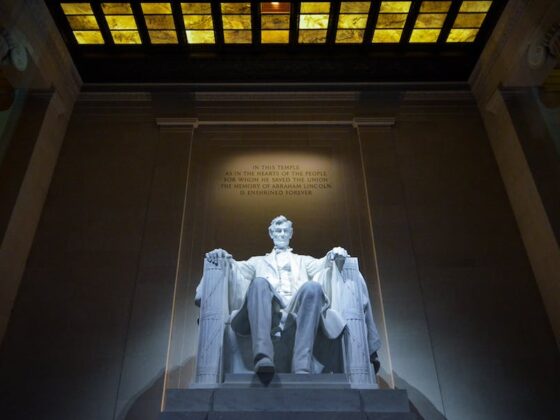Friday the 13th is a date that conjures a mix of fascination and fear, deeply ingrained in popular culture and folklore. As we look ahead to 2025, the occurrence of this date continues to intrigue many. Friday the 13th has long been associated with superstition and bad luck, with its roots tracing back to various historical, religious, and cultural contexts. For some, it’s just another day, but for others, it holds a special significance that can influence behaviors and beliefs. Understanding the origins and the widespread impact of Friday the 13th helps demystify the fears surrounding it. This article delves into the history, superstitions, and cultural interpretations of Friday the 13th, focusing specifically on its occurrence in 2025.
What Is The Significance Of Friday The 13th In 2025?
Friday the 13th of 2025 continues to be a day shrouded in superstition and mystery. Many people believe it to be an unlucky day due to historical events and cultural myths. In 2025, as in past years, this date will likely see a mix of curiosity and caution, with some avoiding travel, important decisions, or major events. The day remains a fascinating topic for those interested in folklore and the psychological impact of superstitions.
The History And Origins Of Friday The 13th
The origins of Friday the 13th as a day of superstition and fear can be traced back to several historical and religious contexts. One of the most common beliefs is that the fear of Friday the 13th stems from the combination of two superstitions: the fear of the number 13 and the fear of Fridays. The number 13 has long been considered unlucky, partly due to its association with the Last Supper, where Judas Iscariot, the disciple who betrayed Jesus, was the 13th guest. Fridays have also been considered unlucky in Christian traditions, as it is believed that Jesus was crucified on a Friday.
Additionally, the fear of Friday the 13th gained further traction in the 19th century with the publication of the novel “Friday, the Thirteenth” by Thomas W. Lawson, which portrayed the day as one of financial ruin and disaster. Over time, these fears became ingrained in popular culture, leading to a widespread belief that Friday the 13th is a day to be wary of.
In modern times, Friday the 13th continues to be a significant day for many people worldwide. Some avoid important activities, such as traveling, making major purchases, or starting new projects, to evade bad luck. Despite the lack of scientific evidence supporting these superstitions, the fear and fascination surrounding Friday the 13th persist.
Cultural interpretations of Friday the 13th also vary. In some cultures, the day is seen as an opportunity for reflection and caution; in others, it is considered a day of heightened spiritual awareness. Regardless of the differing views, Friday the 13th in 2025 will continue to capture the public’s imagination and influence behavior.
As we approach Friday the 13th in 2025, it is essential to understand the historical and cultural contexts that have shaped this day into what it is today. By doing so, we can better appreciate its significance and its impact on our lives.
The Superstitions And Myths Surrounding Friday The 13th
Historical Superstitions
The fear of Friday the 13th is deeply rooted in history, with superstitions dating back centuries. One of the most well-known beliefs is that having 13 people at a table is unlucky, stemming from the Last Supper. Additionally, Fridays were historically considered unlucky due to their association with Jesus’ crucifixion.
Modern-Day Myths
In contemporary times, Friday the 13th has become synonymous with bad luck and superstition. Many people believe this day is more prone to accidents, mishaps, and unfortunate events. Popular culture, including movies, books, and media coverage, perpetuates this belief.
Psychological Impact
The fear of Friday the 13th, known as paraskevidekatriaphobia, can have a significant psychological impact on individuals. This phobia can lead to anxiety, stress, and avoidance behaviors, affecting people’s daily lives and activities. Understanding the psychological aspects of this fear can help in addressing and alleviating it.
Cultural Variations
Different cultures have their interpretations of Friday the 13th. While it is considered unlucky in many Western cultures, other cultures may view it differently. For example, in Italy, Friday the 17th is considered unlucky instead. Exploring these cultural variations provides a broader perspective on the significance of this day.
The Influence of Media
The portrayal of Friday the 13th in movies, television shows, and books has significantly influenced public perception. The “Friday the 13th” horror franchise, in particular, has cemented the association of this day with fear and bad luck. Analyzing the role of media in shaping these beliefs offers insight into the perpetuation of superstitions.
Common Superstitions On Friday The 13th
Many people hold specific superstitions about Friday the 13th, believing certain actions can bring bad luck on this day. Here are some common superstitions:
- Avoid traveling to prevent accidents.
- Don’t start new projects or ventures.
- Stay away from ladders and broken mirrors.
- Refrain from scheduling important events or surgeries.
- Be cautious with financial decisions.
- These superstitions, while lacking scientific evidence, continue to influence behaviors and decisions on Friday the 13th.
Alternative Perspectives On Friday The 13th
While Friday the 13th is commonly viewed as a day of bad luck and superstition, some see it as an opportunity for positive reflection and spiritual growth. In certain cultures and belief systems, the number 13 is considered auspicious and connected to transformation and renewal. Rather than avoiding activities or making decisions out of fear, individuals can use this day to challenge their beliefs and confront irrational fears.
Another perspective is that the fear of Friday the 13th is a self-fulfilling prophecy. When people expect bad things to happen, they may become more anxious and accident-prone, inadvertently causing the very mishaps they fear. By adopting a more positive outlook, individuals can break this cycle and approach the day with confidence and calm.
Furthermore, Friday the 13th can serve as a reminder of the power of collective beliefs and their impact on society. Understanding the origins and reasons behind these superstitions can help demystify them and reduce their influence. Embracing this day as an opportunity for education and introspection can turn it into a positive experience.
Friday The 13th In Popular Culture
1. Movies and Television
The “Friday the 13th” franchise has played a significant role in popularizing the fear of this day. The movies depict Jason Voorhees, who embodies the terror associated with Friday the 13th, perpetuating the superstition through horror films.
2. Literature and Art
Numerous books and artworks explore the themes of superstition and fear surrounding Friday the 13th. These creative works delve into the psychological and cultural aspects of the day, offering various interpretations and insights.
3. Media Coverage
News outlets often highlight stories of accidents or unusual events occurring on Friday the 13th, reinforcing the idea that it is an unlucky day. This media attention can shape public perception and behavior.
4. Social Media and Memes
In the digital age, Friday the 13th has also become a popular subject for social media posts and memes. These often humorous takes on superstition contribute to its ongoing relevance and visibility in modern culture.
Conclusion
As we approach Friday the 13th in 2025, it’s important to recognize the cultural, historical, and psychological factors that contribute to the day’s enduring mystique. While superstitions may influence behavior, understanding their origins and questioning their validity can help mitigate irrational fears. Whether viewed with caution or curiosity, Friday the 13th remains a fascinating topic that reflects the power of collective beliefs and their impact on society.
FAQs
1. Why Is Friday The 13th Considered Unlucky?
Friday the 13th is considered unlucky due to a combination of superstitions surrounding the number 13 and the day Friday, both of which have historical and religious associations with bad luck.
2. How Often Does Friday The 13th Occur In 2025?
In 2025, Friday the 13th will occur once, in June.
3. What Are Some Common Superstitions Associated With Friday The 13th?
Common superstitions include avoiding travel, not starting new projects, staying away from ladders and broken mirrors, and being cautious with financial decisions.
4. Is There Any Scientific Basis For The Fear Of Friday The 13th?
There is no scientific evidence to support the belief that Friday the 13th is unlucky. The fear is largely based on cultural and historical superstitions.
5. How Do Different Cultures View Friday The 13th?
Different cultures have varying views on Friday the 13th. While it is considered unlucky in many Western cultures,










